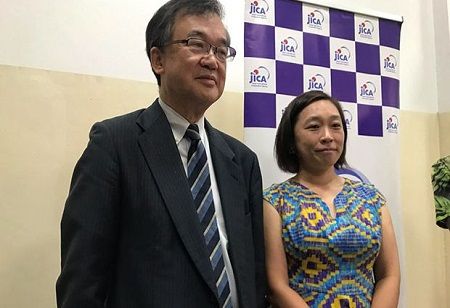Japanese Ambassador to Ghana, Hiroshi Yoshimoto, has announced plans to collaborate with the Ministry of Education to address the country’s educational challenges. Emphasizing the importance of primary education, Yoshimoto stressed that Japan is committed to supporting Ghana by sharing its educational expertise.
“We have a long-standing relationship with Ghana that extends beyond economic contributions. Education, especially primary education, is of great importance to us. Japanese schools focus on developing responsibility, teamwork, and a variety of skills in children through both academic and extracurricular activities”, says Ambassador Yoshimoto.
The ambassador revealed that discussions are already underway between Japan and Ghana to explore possible partnerships in integrating aspects of the Japanese educational system into Ghana’s schools. He highlighted teacher training, curriculum development, and educational practices as areas where Japan could offer valuable support.
He also pointed to Egypt as a successful model where Japan’s educational system has been adopted, noting the potential for a similar collaboration in Ghana. “The Minister of Education in Ghana is currently considering curriculum reform, and we see this as an opportunity to contribute our expertise”, he stated.
Ambassador Yoshimoto further emphasized the importance of sharing experiences between the two countries, stating that Ghana has valuable educational examples and challenges that Japan can learn from as well. He expressed confidence that the collaboration would benefit both nations.
Momoko Suzuki, Chief Representative of JICA Ghana, echoed these sentiments, underscoring the importance of human capital development for Ghana’s economic progress. “We believe that the Japanese educational system is key to unlocking Ghana’s potential, as it not only focuses on academic subjects like English and Mathematics but also nurtures a sense of responsibility, teamwork, and leadership”, she added.
Suzuki added that equipping children with soft skills like communication, problem-solving, and critical thinking is crucial for their employability. “By enhancing both hard and soft skills, we empower our children to pursue opportunities and contribute positively to society”, she stated.
JICA is also working with school management committees to improve their effectiveness and promote community involvement in education, fostering a sense of ownership and responsibility among parents and local communities.
Prof. Lloyd Amoah, Director of the Centre for Asian Studies at the University of Ghana, noted that while Ghana and Japan share many educational values, Japan’s more structured approach offers valuable lessons for Ghana. He stated, “Although we share common values, Ghana can certainly learn from Japan’s organized methodology”.
With nearly 70 years of collaboration between the two nations, the partnership is poised to further strengthen Ghana’s education system and contribute to the country’s long-term development.

